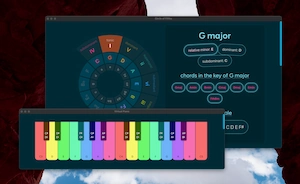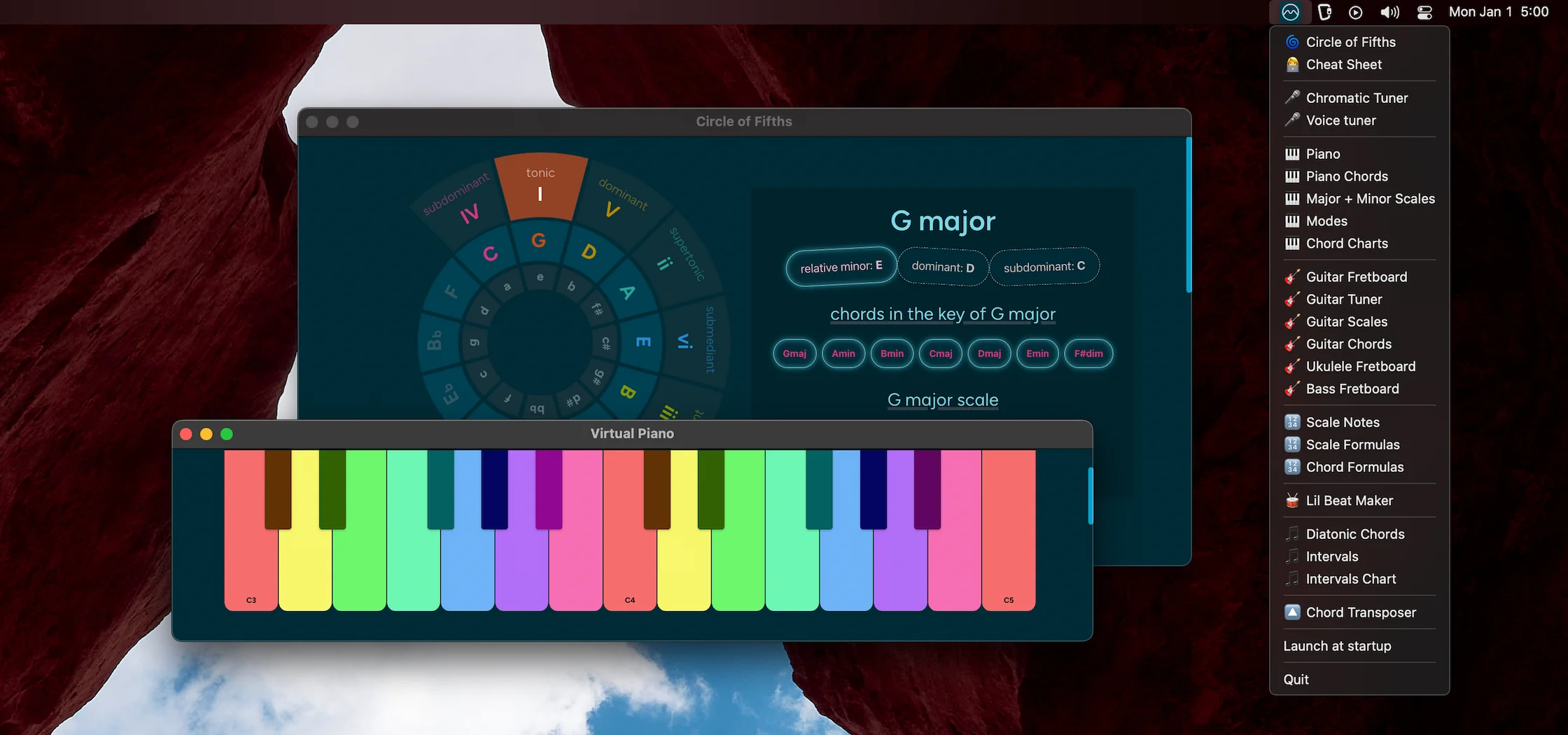Relative Pitch: Test and Train Your Pitch Recognition Skills
🎵 Here's a little relative pitch training/testing game created to help
develop your musical ear.
📈 Relative pitch is the ability to determine the pitch of a note as it
relates to another known note, giving musicians the power to play by ear,
transcribe music and recognize chord progressions.
🎲 With practice, relative pitch can be improved significantly. This game
facilitates that by testing your pitch interval recognition skills.
🟢 When the game starts you'll hear both a known reference pitch and a pitch
to guess.
👂 Listen to both pitches and try to identify it based on the reference pitch.
Make your guess. If you're not confident, move to the next pitch using the
same reference, or change your reference pitch for a new challenge.
🤹♂️ If you like this game, you might also like the
key signature identification game
and the note identification game.
Reference pitch:
Pitch to guess:
Your guess ↷
Relative Pitch vs Perfect Pitch
Relative pitch is the ability to identify the interval between two notes. It's about understanding the musical distance from one note to another. Musicians with good relative pitch can identify notes, chords, and keys by comparing them to a reference note they've heard.
Perfect pitch, also known as absolute pitch, is the rare ability to identify or recreate a given musical note without the need for a reference note. Someone with perfect pitch can hear a note and name it (C, G#, etc.) on the spot.
While relative pitch can be developed and improved with practice, perfect pitch is often considered an innate ability, typically identified and developed early in life. Both are valuable, but they serve musicians differently in practice and performance.



